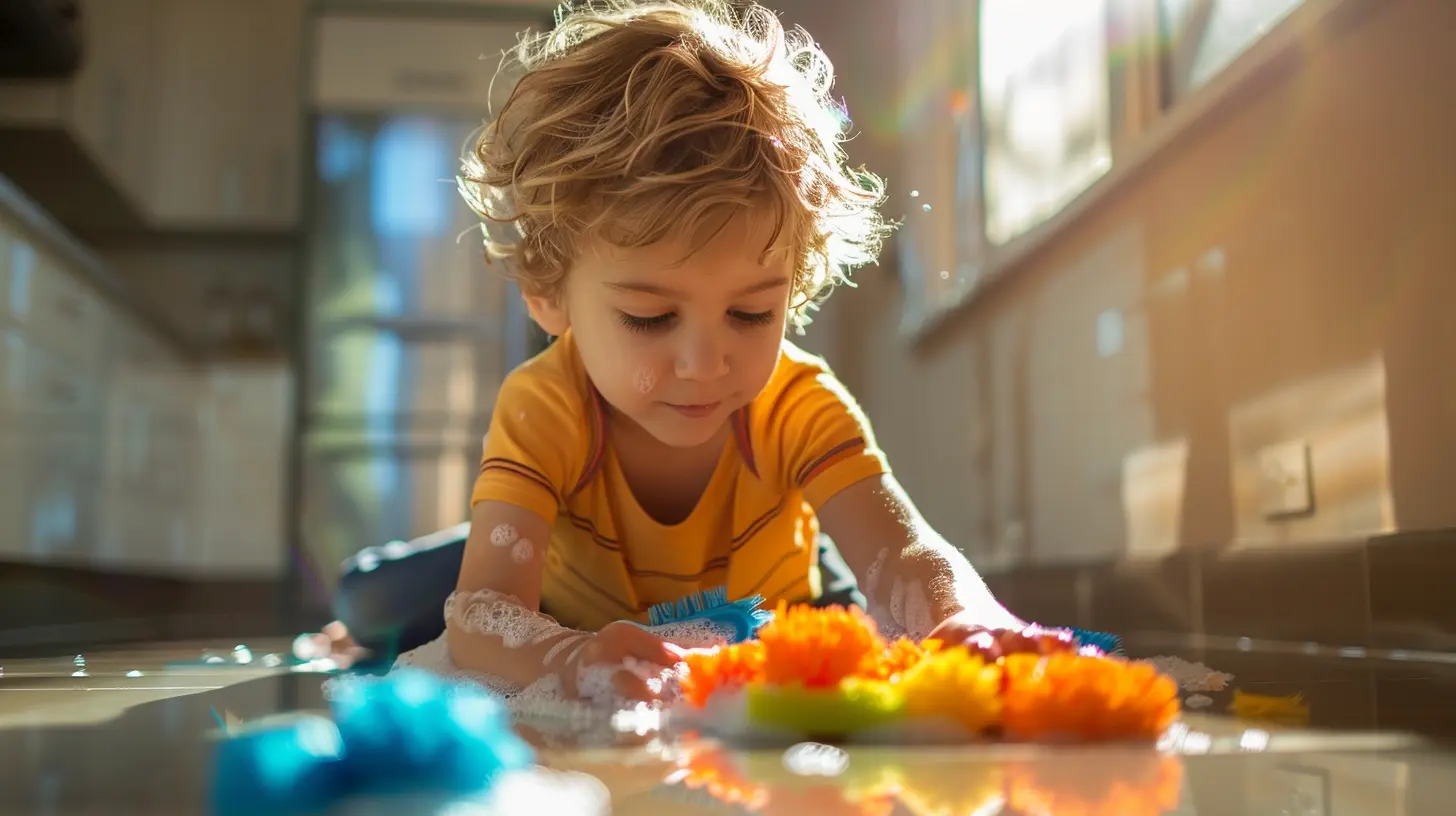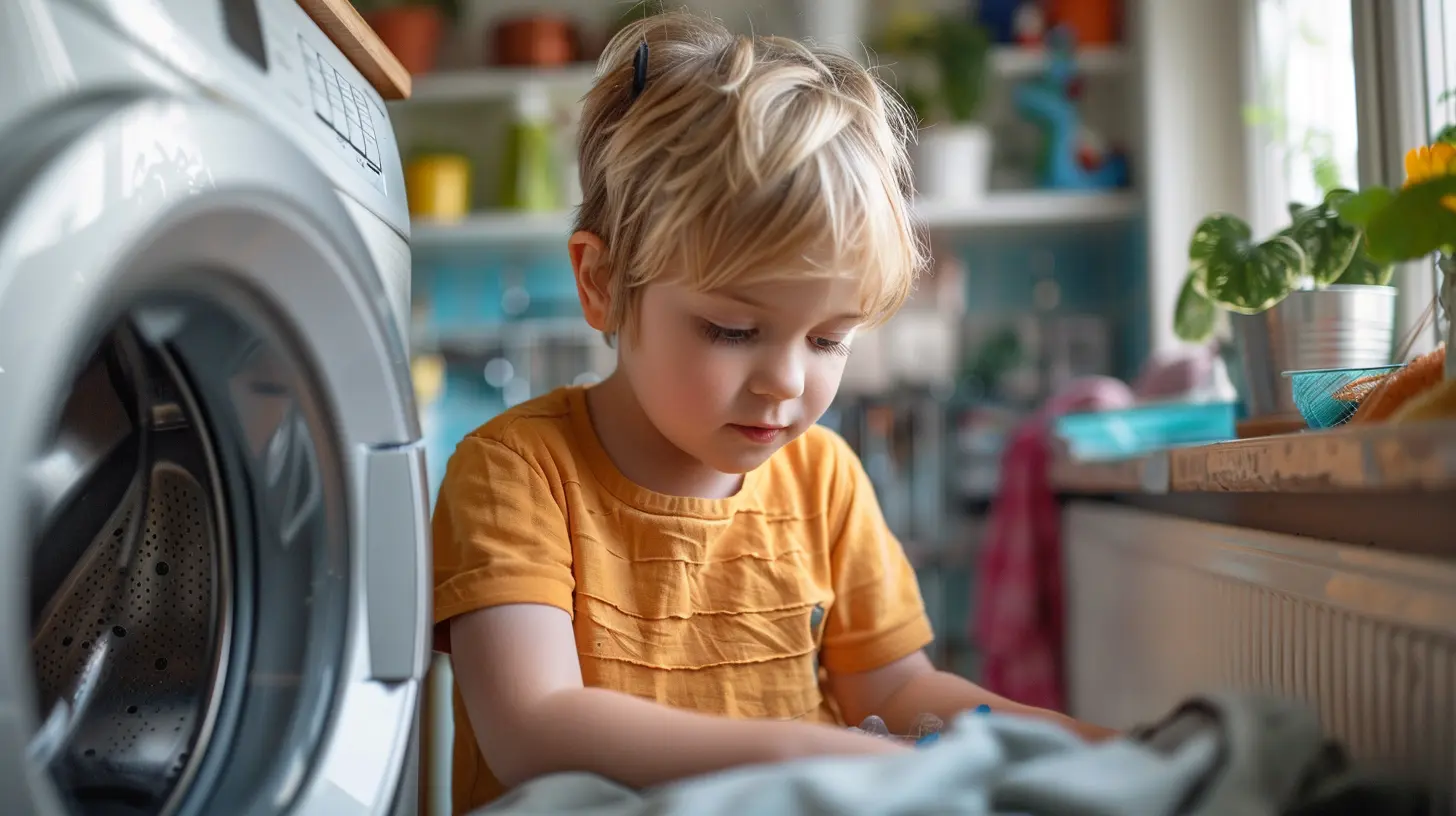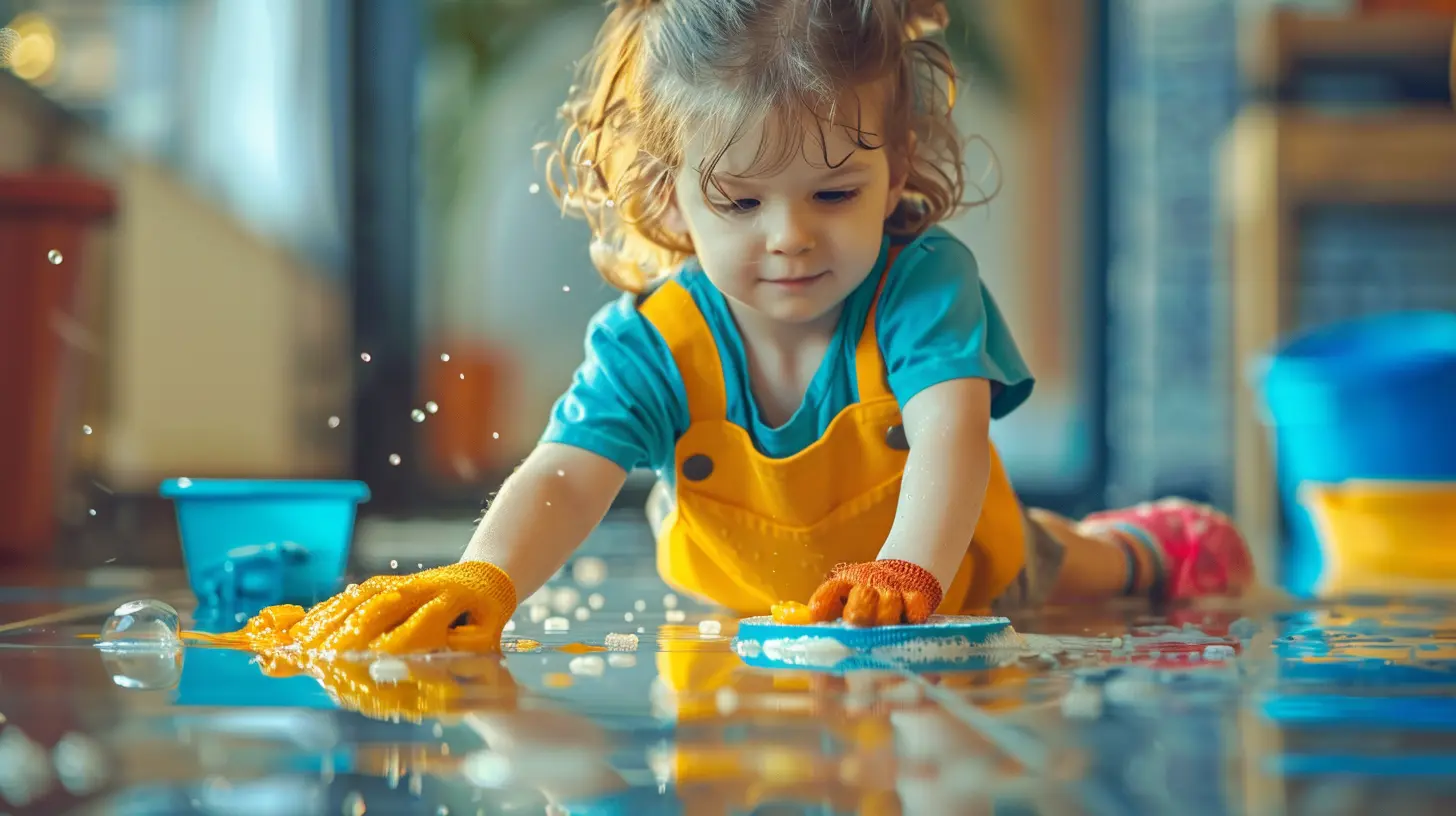Chore Apps for Kids: Do They Really Work?
26 September 2025
Let’s be honest—getting kids to do chores can feel like pulling teeth. You try sticker charts, allowance, even that dance you do with the broom while cheerfully singing, “Let’s clean up!” Still, the laundry sits sad and forgotten, the dishes gather like a crowd at a concert, and your kids vanish the second you mention the word “chores.”
Enter chore apps for kids.
These digital tools promise to make cleaning and responsibility… dare we say… fun? But do they really work? Or are they just another shiny distraction in the ever-growing sea of parenting hacks that don’t quite hack it?
Let’s dive deep into the world of chore apps, explore what they offer, if they actually change behavior, and whether they can turn your home from chaos to clean (without begging, bribing, or losing your mind).
What Are Chore Apps for Kids Anyway?
Chore apps are mobile applications designed to help families manage household responsibilities by assigning, tracking, and sometimes rewarding chores. Think of them as digital replacements for the classic chore chart on the fridge—but with a whole lot more bells and whistles.These apps often allow parents to:
- Assign daily, weekly, or one-time tasks
- Set deadlines or reminders
- Award points or “money” for completed chores
- Track progress and consistency
- Tie chores to screen time, allowance, or privileges
And here’s the best part: many apps let the kids check off chores themselves, sometimes even earning rewards (real or virtual) that they can see rack up in real-time.
Sounds like a dream, right?
Why Parents are Turning to Chore Apps
Let’s face it—traditional methods aren’t always effective. Sticker charts get forgotten. Verbal reminders get ignored. Written lists mysteriously disappear (along with half your socks). So, what makes chore apps appealing?1. Tech Is Already Integrated Into Kids’ Lives
Our kids are digital natives. They learn, play, and communicate through devices. So why not manage chores that way too? If they can build cities in Minecraft, surely they can conquer Mount Laundry.2. Real-Time Accountability
Unlike the “maybe I did it, maybe I didn’t” system of old, chore apps provide updates you can see instantly. No more wondering if the trash was really taken out—it’s logged.3. Built-In Motivation
Many apps incorporate points, badges, rewards—even cash tracking. It gamifies tasks and taps into that same motivation that gets your child to beat their high score on a game.
How Chore Apps Work in Everyday Life
Let’s paint a real-life picture.Imagine this: You open your chore app in the morning. You see that your son has been assigned “Take the dog out,” “Empty dishwasher,” and “Do 15 minutes of reading.” He wakes up, checks his own app (yes, he has access), and knows exactly what he needs to do. Once he completes them, he gets a few points toward a reward—maybe a trip to the ice cream shop on Saturday or 30 extra minutes of screen time.
No arguing. No reminding. No bribing involved.
Now, does it always go that smoothly? Of course not. But this structured system gives you a fighting chance against the old “I forgot” excuse.
Do These Apps Actually Teach Responsibility?
Here’s the million-dollar question. Are these apps just fancier chore charts, or do they actually build life skills?Honestly… it depends. Like any tool, it’s all about how you use it.
Apps work best when they’re part of a bigger parenting strategy. They’re a launching pad—not a magic wand.
Let’s break it down:
1. Encourages Ownership
Because kids have access to their own list of tasks, they begin to take ownership. They’re not just following barking orders; they’re developing autonomy.2. Builds Habits Through Repetition
Kids thrive on routine. When chores are consistent and tracked, they become part of the daily rhythm—just like brushing teeth or putting on shoes.3. Shows the Link Between Effort and Reward
Many apps tie tasks to rewards, helping kids understand that effort leads to positive outcomes. It’s basic economics, learned early.But here’s where parents come in: it’s vital to balance extrinsic motivation (rewards) with the bigger lesson—helping out is part of being a family. That means talking about teamwork, gratitude, and life skills beyond just the points.
Top Chore Apps for Kids (That Actually Work)
Let me save you from downloading a dozen apps and praying one sticks. Here are some highly-rated, parent-approved apps that pack a punch.1. BusyKid
- Best for: Teaching money management- Features: Assign chores, pay allowance, invest earnings
- Why it works: Kids can actually invest their allowance in stocks—talk about real-world lessons!
2. OurHome
- Best for: Families with older kids- Features: Assign tasks, track goals, shared family calendar
- Why it works: It’s more of a family organizer that includes chores, helping kids plan their time too.
3. FamZoo
- Best for: Virtual family banking- Features: Chore lists, allowance, saving/spending goals
- Why it works: It mimics a real bank account and is great for teaching budgeting.
4. Chores & Allowance Bot
- Best for: Reward tracking- Features: Automates allowance, tracks completed tasks
- Why it works: Simple and user-friendly with flexibility for all ages.
5. Homey
- Best for: Tying chores to real-life financial rewards- Features: Task tracking, photo proof, goal setting
- Why it works: You can require photo evidence of completion—so no more fake “I vacuumed!” claims.
Common Pitfalls (And How to Avoid Them)
Okay, let’s keep it real. These apps aren’t miracle workers. They’re tools. And like any tool, they come with a learning curve and lots of trial and error. Here are a few common missteps:😬 Overcomplicating Things
You don’t have to assign 20 chores on day one. Start small. Let kids get in the groove. Think of it like training wheels—then you slowly take them off.😫 Focusing Only on Rewards
Yes, rewards are cool. Points are exciting. But if everything becomes transactional, your child might only help for the “prize.” Talk about why chores matter beyond the app.😕 Lack of Follow-Through
If you don’t check the app, notice completed chores, or deliver rewards, your child will eventually lose interest. You’ve got to stay in the game too, even if that means five minutes each day reviewing their progress.What Age Is Best to Start?
You’d be surprised how early kids can start helping. Toddlers can help pick up toys. Preschoolers can water plants. The key is matching the chores to the child’s age and ability.Apps work best with kids 5 and up—especially once they can read and navigate a screen. But even younger kids can benefit with a little parent-guided app time.
Real Talk: Do Chore Apps Change Behavior Long-Term?
Short answer: they can.Long answer: they can—but only if used intentionally. Apps provide accountability, structure, and rewards. But building character and responsibility? That’s still on us, the parents.
Use apps as a tool—not a substitute—for good parenting. Keep the conversations going:
- “Why do we all pitch in?”
- “How does it feel when we help each other?”
- “What does responsibility mean to you?”
Because at the end of the day, we’re not just raising kids who do chores. We’re raising future adults who clean up after themselves, understand the value of hard work, and contribute to their community.
The Heart of It All
Here's what it really boils down to: chore apps can absolutely help. They can make life smoother, arguments fewer, and laundry piles smaller (well, maybe). But they work best when they’re part of a bigger plan that includes grace, patience, and a whole lot of love.So yes, try the app. Pick one that fits your family’s vibe. See it as an ally, not a crutch. And let it help you raise kids who don’t just do chores—but who do them with pride.
And hey, if it saves you from repeating yourself 147 times a day? That’s a win in itself.
Final Thoughts
Chore apps for kids aren’t just trendy—they’re an evolving tool that blends tech with life lessons. When used with intention, they simplify parenting, empower kids, and reinforce the idea that we're all on the same team at home.Not every app will work for every kid, but the right one can transform your day-to-day routine. It adds structure, offers incentives, and (most importantly) shifts the emotional energy from nagging to encouraging.
Are they perfect? No.
Are they worth a shot? Absolutely.
After all, if your phone can track your steps, why shouldn’t it help track who cleaned the toilet?
all images in this post were generated using AI tools
Category:
Kids And ChoresAuthor:

Maya Underwood
Discussion
rate this article
1 comments
Roman Mullen
Chore apps can enhance kids' responsibility, but over-reliance might diminish intrinsic motivation. Balance digital tools with hands-on engagement for lasting habits.
October 1, 2025 at 4:07 AM

Maya Underwood
Thank you for your insightful comment! I agree that while chore apps can foster responsibility, it's crucial to maintain a balance with hands-on engagement to nurture intrinsic motivation in kids.


